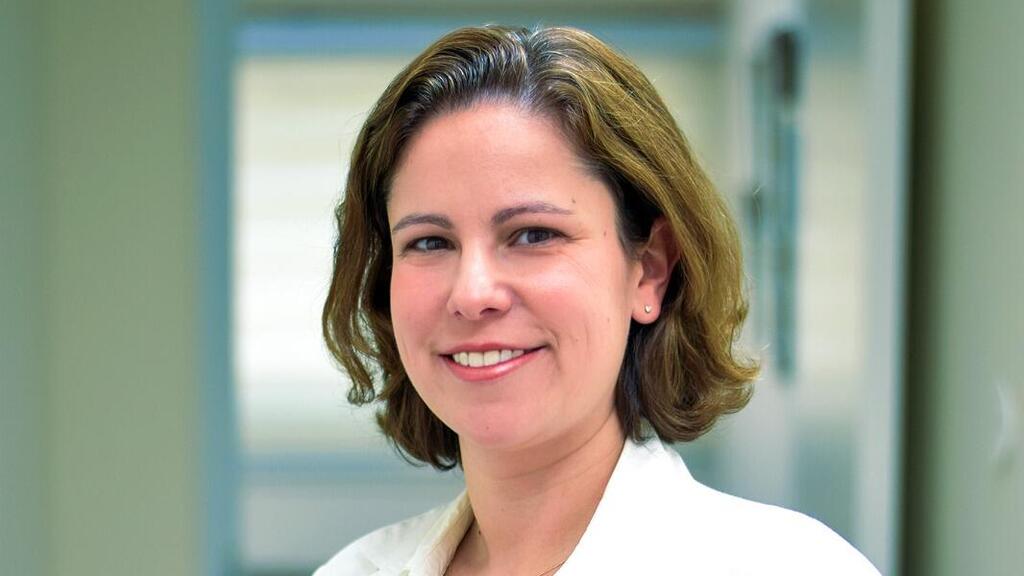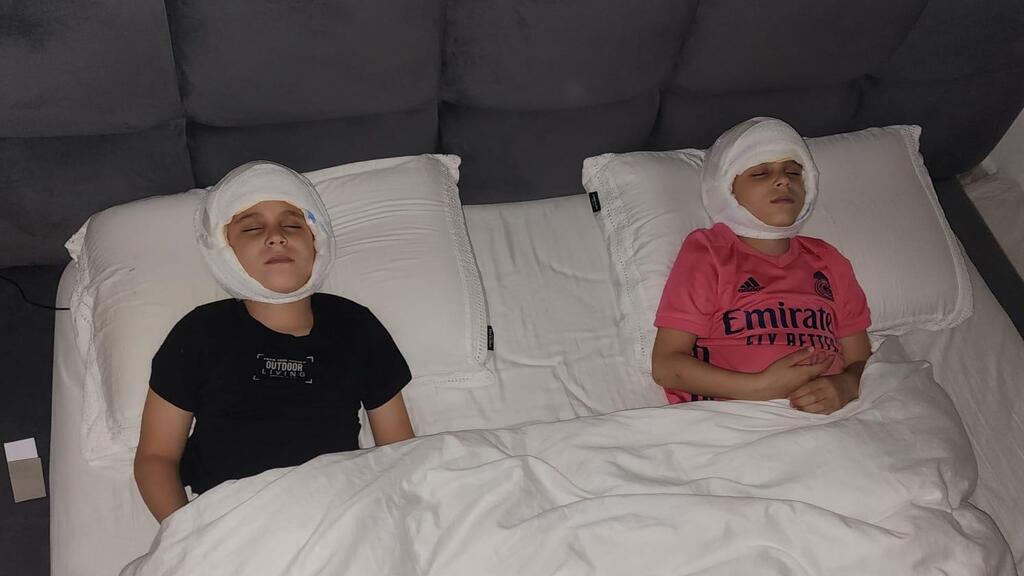Getting your Trinity Audio player ready...
When Shoval Dayan was around four years old, her mother, Tanya, noticed her daughter's prominent ear shape. "I remember wondering if it would bother her or if the loose hair would cover it and she'd ignore the slightly unusual appearance."
But Shoval refused to wear her hair in a ponytail as soon as first grade. "In the morning, I’d tie her hair back, and by noon she’d come home from school with it down. When she moved up to third grade, she asked me to tape her ears down because they were too noticeable."
Tanya wasn’t aware that her daughter, a friendly and popular child, had fallen victim to cruel shaming. "Shoval was in a dance class and the girls in the row behind her would mock her, saying her ears blocked their view. At that point, I realized it was enough — I wasn’t going to let my daughter suffer, so I began looking into ear pinning surgery."
A year ago, when Shoval was nine, she underwent the surgery and began smiling again. "At first, they refused to cover the surgery, claiming it was a cosmetic one. I agreed with that definition but explained that its primary benefit was psychological, as Shoval was in distress. Then, they shifted to a second argument, saying she had emotional issues and referred her to a psychiatrist. I didn’t give up,” Tanya said recalling the process to approve the surgery.
Soon, she received a referral to the plastic surgery clinic at Kaplan Medical Center. "We met the doctor and I was very impressed by her openness and the clear way she described the procedure and recovery process, but we still had to wait a year due to long queues."
Five months after the surgery, Shoval insisted on keeping her hair down. "But ever since that day, she only wears her hair in a tight, gelled-back style. She’s opened up and improved socially since the surgery."
Some 5% of the general population experiences varying degrees of ear protrusion. "As medical understanding advances, when a newborn with prominent ear structure is identified, doctors can apply splints to the ears and tape them within the first few weeks of life. In most cases, this avoids the need for surgery,” explained Dr. Michal Benkler, a senior doctor at Kaplan Medical Center’s plastic surgery department and head of the Infant and Pediatric Plastic Surgery Clinic.
"Ear-pinning surgery in children has been steadily increasing, related to the parents' awareness of the issue. The ear structure that protrudes from the head results from an enlarged concha (the part closest to the face) and a missing ear fold (the cartilage part before the outer ear).
There are several surgical techniques to correct the abnormality. The most common and preferred method involves excising part of the cartilage fold and inserting stitches through a back incision to hold the outer ear in its natural position," Dr. Benkler explained.
Five years ago, Dr. Benkler developed a surgical technique that eliminates the need to remove a segment of cartilage. "In the approach I developed, which has been published in medical literature, I use only stitches to shape the concha, addressing the lack of a fold. The surgery is considered straightforward, with permanent results."
The recommended age for surgery is around six, when the ears have reached 90% of their adult size. While most patients are children and teenagers, adults also undergo the procedure — often before enlistment or a wedding.
"My recommendation is to do the surgery early, as I often meet children and adults pre-surgery who are already mentally scarred." After the procedure, patients leave with a head bandage, which is later replaced by a headband or band until the ears are fully shaped.
Julia and Tomer Edri encouraged their twins, Ofek and Roie, to undergo the surgery at age seven. "The boys were born premature, weighing 1.5 kg (3.3 lbs) and 1.8 kg (4 lbs), and it was immediately noticeable that their ears protruded,” she said.
Even at kindergarten age, the twins asked their mother if their ears were prominent. "One morning, I stood next to them while they brushed their teeth, and Roie repeated the question. I told him they weren't big, just a little prominent and that it actually looked nice. But my kids can't be fooled, and he replied, 'I think it's not nice.'"
The parents hadn't noticed any distress, but the tipping point came from an unexpected place. "Our eldest son Barak, who's 11, has a classmate with the same condition who suffers from other kids' bullying. He endured shaming and insults. I feared that this might be the same for my twins. That's when the surgery became critical in my eyes."
In April, underwent surgery by Dr. Benkler. In the second stage of recovery, their mother bought them headbands and shared they went to school with heads held high. After her experience, the mother offers support to other parents in her situation.
“Surgeries like these were mentioned in adults, but there was nothing for children when we looked for it. So there was no one to answer our questions, to ease my fears and it was only in Dr. Benkler's office that I first saw the surgery’s results. I had no one to ask about this,” she said.
"There's no reason that physical appearance should take a social toll on any child, but unfortunately, life teaches us otherwise and children endure shaming that builds up, disrupting their joy, self-confidence and sense of self-worth,” Dr. Benkler said.
“That's why I recommend ear-pinning surgery for children, which is considered relatively simple and easy but can be transformative for a child who has experienced shaming."
Get the Ynetnews app on your smartphone:






